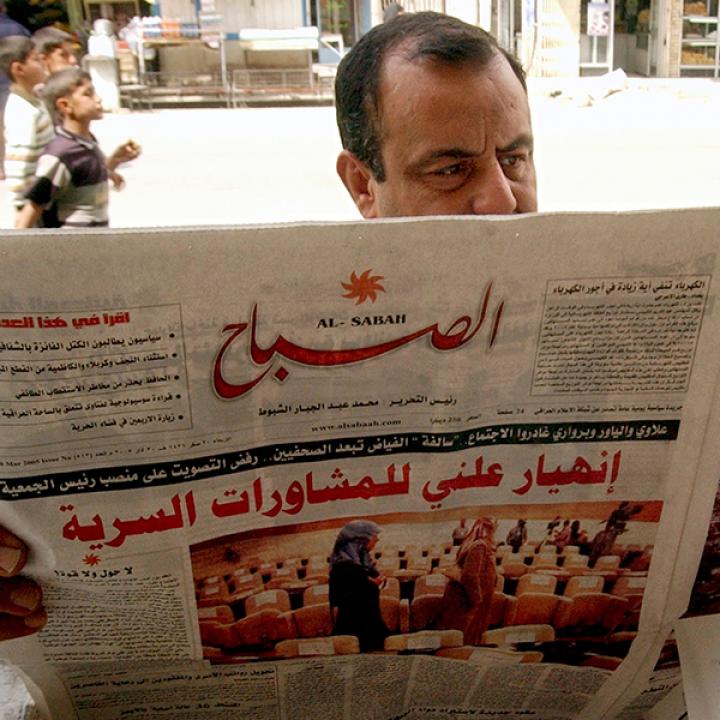
- Policy Analysis
- Articles & Op-Eds
Navigating Press Conferences and Palaces
Also published in Al Majalla

Separating propaganda from truth has always been a challenge in places like Syria, but it is increasingly so in Washington as well given the rise of myriad forms of misinformation.
I recently organised an energy security conference in my hometown of Oil City, Pennsylvania—whose oil discovery in 1859 gave birth to the biggest industry the world has ever seen that connects America and the Middle East like no other. A young girl with my bio printed in her hand walked up to me and asked: “From editor of a Damascus magazine to Director for Syria in the White House. What totally different worlds! How did you know what to do?”
I did not know what to say. Until recently, I would have agreed with her. Damascus under al-Assad is synonymous with rampant corruption, mass atrocities, chemical weapons use, and narcotics smuggling, while Washington remains the capital of the free world. In Damascus, people speak their minds privately in hushed tones, while in Washington they tweet it out in a stream of consciousness. Two different worlds indeed.
Journalism v Statecraft
Journalism and policy statecraft also seem like oil and water. Journalism is, by nature, a ground-up business where curious and polyglot writers watch the physical plane of reality to determine the shape of things to come.
Breaking stories first, however crude, is the key to fame and fortune. Successful journalists become editors—concept-engineers of sorts that help their junior colleagues get information out so to help people understand the latest developments. Successful media moguls hire editorial engineers to construct a body of information that stands the test of time—and at least breaks even on the balance sheet.
Policy statecraft—under tyrannies and democracies alike—is a top-down business. Powerful people with the support of financial interests attempt to set agendas for nation states steering an increasingly interconnected and seemingly chaotic world to the benefit of their countrymen and women.
Instead of engineers, statecraft is dominated by policy architects who spend years working on “their issue” waiting for the opportunity to join government and make their mark on the affairs of state. Those talented at statecraft design their policies based on the changing world with an eye toward what can be. Those less talented “cherry pick” facts from reality that suit their preconceived notions and election slogans, which has led to some of America’s bloodiest and costliest foreign policy blunders starting with the invasion of Iraq 20 years ago.
But practitioners of both occupations face the same challenge: determining solid and verifiable information. Separating propaganda from truth has always been a challenge in places like Syria due to its hefty dose of ideology and authoritarianism. But it is increasingly so in Washington as well with the rise of “fake news” and the myriad of forms of misinformation.
Importance of Emotional Intelligence
So to answer this girl’s great question in the pages of this magazine before my next trip home, the best way to cut through this confusion—be it in a press conference in Damascus about Hezbollah or in a White House meeting when a president is considering pulling troops out of Syria—is summed up in an expression all children learn in my hometown: “Always listen to your gut.”
In other words, while our rational minds are focused on gathering details, listening to your emotional intelligence (which in America we say we can feel in the midsections of our bodies), and “feeling out” the facts and then making decisions, remains the key skill for successful journalists and policy professionals. The question I still cannot answer is what is causing their parents and leaders increasingly to forget.
Andrew Tabler is the Martin J. Gross Senior Fellow at The Washington Institute and former director for Syria on the National Security Council. This article was originally published on Al Majalla’s website.



